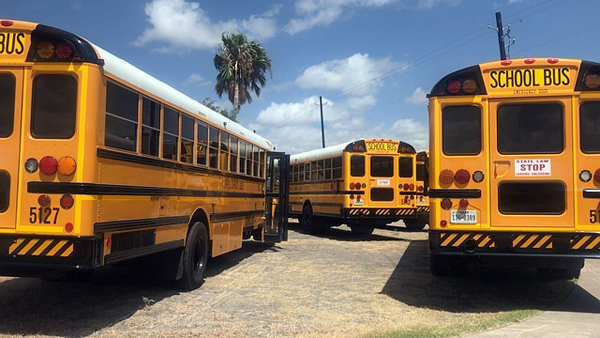- La Feria Community Holds Succesful Business Mixer Event
- Little Nashville to Take Place in Downtown Mercedes
- Lions Basketball Captures District Gold
- La Feria ISD Students Compete in Regional Chess Tournament
- Lions End First Half of 32-4A on a High Note
- La Feria ISD Held Another Successful Parent Conference
- Strong Appearance for Lions at Hidalgo Power Meet
- LFECHS Students Get to Meet Local Actress
- Students Participate in Marine Biology Camp
- Two LFECHS Students Qualify for All-State Band
Texas Officials Warn School Districts Over ‘Illegal Electioneering’
- Updated: March 30, 2018

The state of Texas is warning school districts that busing students to polling places could constitute “illegal electioneering.” Photo: Pixabay
by Mark Richardson
AUSTIN, Texas – Educators and voting-rights advocates say a move by Texas Attorney General Ken Paxton to stop some school districts from helping students register to vote amounts to voter suppression.
More than a dozen school districts have received information requests, followed by “cease and desist” letters from the state, demanding that they stop “illegal electioneering,” or using taxpayer money to advocate for political candidates.
Anthony Gutierrez, executive director of Common Cause Texas, says the actions are politically motivated by Texas Republicans who don’t want an influx of first-time voters in the November mid-term elections.
“I think it’s absolutely insane,” he says. “Very clearly, I think these educators are just trying to foster a culture of voting and civic engagement for students. This is exactly what they should be doing. I can’t begin to imagine any legitimate reason why the attorney general should be coming out against that.”
Paxton is accusing school officials of violating Texas election codes by encouraging students and others to vote for a particular person or ballot measure, but district officials say they did not do that. A recent ruling by Paxton also warned districts that busing teachers and voting-age students to polling places is illegal unless such trips are for “educational purposes.”
Gutierrez says Paxton’s threats fly in the face of a separate state law that requires districts to assist students who are 18 or older to become registered to vote.
“The state really seems to not care,” he adds. “They were made aware of it and set up some Google Drive stuff so that schools could request forms they’re supposed to already have. You put these things together, it really seems like people are just going out of the way to make sure that there is no engagement happening.”
He also says the moves appear to be part of a campaign by conservative groups and Republicans to intimidate people who are unlikely to vote for their candidates.
“I think there is no question that this falls under exactly the same sort of category as those other types of voter suppression that we see from the state sometimes, like a voter ID law,” explains Gutierrez. “I think there is no question that this is voter suppression.”
Gutierrez says school districts have had programs for years designed to educate students and faculty about the candidates and issues in upcoming elections, but this year is the first time the state has identified such programs as election-law violations.


